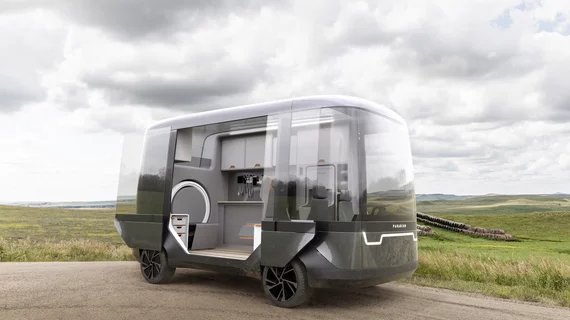$16.4M grant fuels creation of ‘world’s first’ mobile, whole-body CT scanner
A $16.4 million grant is fueling the creation of the “world’s first” mobile, whole-body CT scanner.
Adelaide, Australia, vendor Micro-X is undertaking the assignment, utilizing funds from the U.S. Advanced Research Projects Agency for Health (ARPA-H). They’re seeking to address challenges accessing imaging in rural areas
Micro-X will work to develop a lightweight, portable CT option that’s easily scalable.
“ARPA-H’s vision for the PARADIGM [Platform Accelerating Rural Access to Distributed and Integrated Medical Care] Program is closely aligned with Micro-X’s vision to create revolutionary X-ray imaging to better lives,” Brian Gonzales, PhD, the company’s chief scientific officer and U.S. CEO, said in a statement shared Feb. 12. “We are extending hospital grade imaging beyond the boundaries of conventional hospitals to bring a vehicle-mounted, full-body CT solution to rural communities."
The agency will fund the device’s development over up to five years, depending on if it picks up an extension, all the way through to FDA premarket submission. Micro-X will utilize its Nano Electronic X-ray tubes to deliver CT at only 500 pounds compared to the conventional computed tomography weight of over 4,400 lbs. The company developed this technology previously through grants awarded by the U.S. Department of Homeland Security and Australian Medical Research Future Fund.
Conventional CT holds the largest share of the global medical imaging market at 30%, those involved noted.

